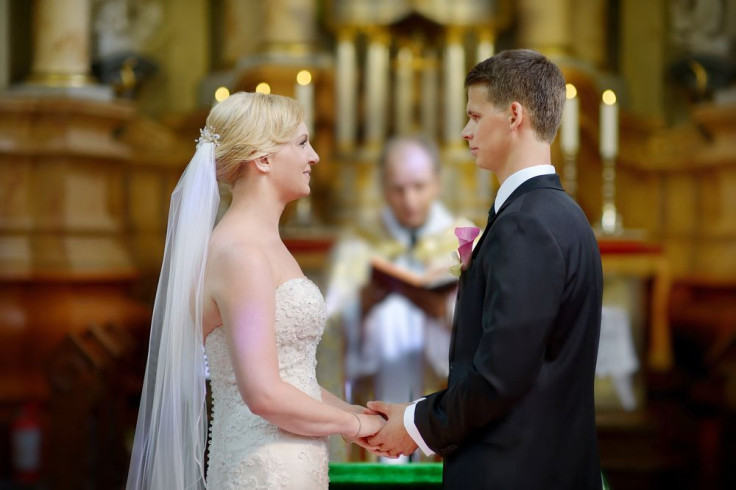Rarity Of Interfaith Marriage Partly Explained By Assumptions On Open-Mindedness

In today’s online dating craze, there seems to be a site for everyone, with religious-based websites being some of the most popular. However, as revealed by a recent study, the motive behind the desire to date someone of a similar faith may not lie in shared religious beliefs but rather similar perception of open-mindedness.
Although interfaith marriages are on the rise in the U.S., the majority of marriages which occur in America, and the rest of the world for that matter, are still between individuals of the same faith. A recent study from the University of Otago in New Zealand aimed to discover why.
For their study, the researchers measured how religious and non-religious individuals perceived the “openness” of potential mates. According to the press release, openness to experience is a large aspect of an individual’s personality and has even been found to be considered more important than general intelligence when it comes to academic success. While we subconsciously tend to look for this trait in potential partners, as shown by the study, not everyone perceives “openness” as meaning the same thing.
In the first part of the study, religious and non-religious volunteers decided whether or not they wanted to date a potential romantic partner based only on how frequently they attended religious service. According to the press release, the research team found that non-religious volunteers found potential partners both less desirable and less open as their religious behavior increased.
For the second part, participants were asked to judge those who either frequently or infrequently attended religious services. However, this time there was a twist. Beforehand, the potential romantic dates also disclosed their personal “openness” with statements such as "I don't pretend my ethical perspective is the only one." This time the results varied slightly. While the non-religious participants still preferred non-religious partners, they also showed a preference for partners who expressed openness to new experiences. The religious participants showed a preference for the exact opposite.
Based on these results, the team determined that the tendency for partners to choose mates who shared their same religious beliefs (or lack thereof) was not only based on faith.
"[The results] illustrate, for the first time, that people's decision to partner with religious or non-religious individuals can be determined by personality traits that religiosity is believed — rightly or wrongly — to predict, rather than religion itself," Professor Jamin Halberstadt, one of the study’s authors, explained in the press release.
However, this perception of openness was not consistent among participants. While all participants seemed to agree that non-religious individuals were more open-minded, there was a general disagreement over whether or not this was necessarily a good thing. The researchers believe it’s this perception that leads to so many same-faith (or same-faithless) marriages.
Source: Jackson J, Halberstadt J, Jong J, Felman H. Perceived Openness to Experience Accounts for Religious Homogam. Social Psychology & Personality Science. 2015.



























